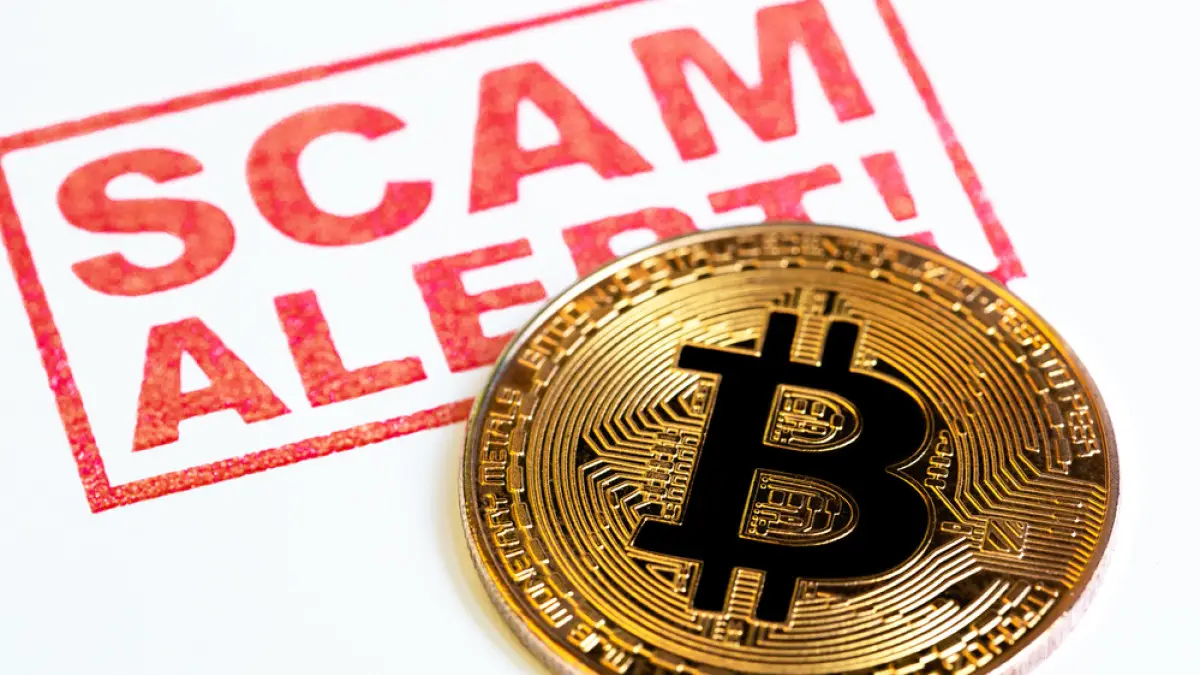Welcome to our blog on “Beware: Bangkok’s most common scams and How to avoid them.” Bangkok is a vibrant and exciting city with a rich cultural heritage, but it is also known for its scams and fraudulent activities. In this blog, we will delve into the most common scams that tourists face in Bangkok and provide you with tips and advice on how to avoid them.
Our aim is to educate travelers and help them stay safe while they explore the wonders of Bangkok. So, whether you are a first-time visitor or a seasoned traveler, this blog is for you. Join us as we explore the city, learn about its culture, and discover the best ways to avoid scams and stay safe.
Table of Contents
Introduction: The Importance of Being Prepared
Bangkok, the capital city of Thailand, is a popular tourist destination known for its rich culture, delicious street food, and vibrant nightlife. However, visitors should also be aware of the various scams that are prevalent in the city. These scams are designed to take advantage of unsuspecting tourists and can result in financial losses and ruined vacations. It is essential to be prepared and aware of these scams so that you can avoid them and enjoy your trip to Bangkok to the fullest. In this blog, we will discuss the most common scams in Bangkok and provide tips on how to avoid them. By being prepared and vigilant, you can ensure a safe and enjoyable trip to this vibrant city.
The Grand Palace Gem Scam
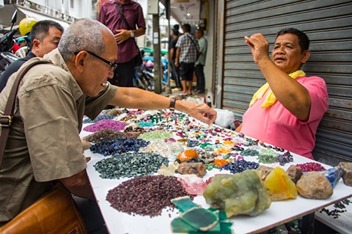
The Grand Palace Gem Scam is one of the most prevalent scams in Bangkok. Tourists are approached by friendly individuals who claim to work for a gem company and offer to show them the best gemstones in town. They then take the tourists to a shop, where they are pressured into buying overpriced and often low-quality gems. This scam can be particularly effective because the scammers appear trustworthy and knowledgeable about gems, making it difficult for tourists to distinguish between a legitimate offer and a scam.
To avoid the Grand Palace Gem Scam, it is important to do your research before your trip and understand the basics of gemstones. Additionally, it is best to avoid buying gems from street vendors or unlicensed shops, and only purchase from reputable dealers who have a good reputation and provide a certificate of authenticity. If you are interested in buying gems in Bangkok, it is also a good idea to seek recommendations from your hotel or a trusted local. By being informed and cautious, you can avoid falling victim to the Grand Palace Gem Scam and ensure that you only purchase genuine, high-quality gems during your trip to Bangkok.
It is also important to be aware that some scammers might claim that the gems you purchase can only be sold in Thailand, making it difficult for you to resell the gems in your home country. This is a tactic used to keep you from checking the gems’ quality and value with local authorities or gem experts in your home country.
If you do decide to buy gems in Bangkok, be sure to get a written receipt, and never be afraid to walk away from a deal that seems too good to be true. Additionally, it is wise to keep your valuables, including your gems, in a safe place and not to flaunt them in public, as this can make you a target for theft.
In conclusion, the Grand Palace Gem Scam is one of the most common scams in Bangkok, but it can be easily avoided with a little bit of preparation and caution. By following the tips outlined above, you can ensure that your gem-buying experience in Bangkok is safe, enjoyable, and hassle-free.
The Tuk-Tuk Overcharging Trick

The Tuk-Tuk Overcharging Trick is another common scam in Bangkok, where tourists are lured into taking a ride in a Tuk-Tuk, only to be charged an exorbitant fee at the end of the trip. Tuk-Tuk drivers may claim that the destination you want to go to is closed or that the fare has suddenly increased, leading you to agree to a much higher fare. They may also take you on a longer route to your destination, resulting in a higher fare.
To avoid the Tuk-Tuk Overcharging Trick, it is important to negotiate the fare before getting into the Tuk-Tuk. You can use a map or a ride-hailing app to estimate the approximate cost of the trip, and always agree on the fare before setting off. It is also helpful to have some small bills on hand, as Tuk-Tuk drivers may claim that they do not have change for larger bills.
If you find yourself in a situation where you are being overcharged, it is best to remain calm and politely negotiate the fare. If you are unable to reach an agreement, it is okay to refuse the ride and find another mode of transportation.
In conclusion, the Tuk-Tuk Overcharging Trick is a common scam in Bangkok, but it can be easily avoided by being prepared and negotiating the fare beforehand. By following these tips, you can ensure that your Tuk-Tuk rides in Bangkok are fair, safe, and enjoyable.
The Fake Buddhist Monk Scam

The Fake Buddhist Monk Scam is a common trick in Bangkok where individuals dressed as Buddhist monks approach tourists and ask for a donation. These individuals are not actual monks and may use the donated money for personal gain. They may also try to pressure tourists into giving more money by making them feel guilty or ashamed.
To avoid the Fake Buddhist Monk Scam, it is important to be aware that real Buddhist monks do not solicit money from strangers and rely on alms from the local community. If you wish to make a donation to a Buddhist temple, it is best to do so directly at the temple rather than giving money to individuals on the street.
If you are approached by someone claiming to be a Buddhist monk and asking for money, it is okay to decline their request and continue on your way. If you feel pressured or uncomfortable, it is also okay to walk away from the situation.
In conclusion, the Fake Buddhist Monk Scam is a prevalent trick in Bangkok, but it can be easily avoided by being aware of the practices of real Buddhist monks and declining requests from individuals on the street. By following these tips, you can ensure that your encounters with Buddhist monks in Bangkok are genuine and fulfilling experiences.
The Overpriced Taxi Scam
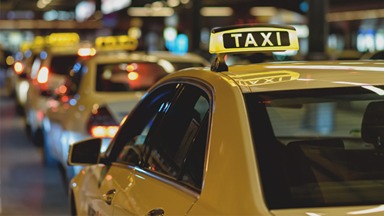
The Overpriced Taxi scam is a common trick in Bangkok where taxi drivers charge excessively high fares for a ride. This can happen because the taxi driver may use an older or broken meter that does not reflect the current fare, or they may claim that the destination you want to go to is far away and charge you a higher fare. They may also take you on a longer route to your destination to increase the fare.
To avoid the Overpriced taxi scam, it is important to only take taxis from reputable companies and to make sure that the meter is turned on and functioning properly. You can also use a map or a ride-hailing app to estimate the approximate cost of the trip, and to compare the fare with other taxis in the area. If you are unsure of the fare, you can ask the driver for a rough estimate before starting the ride.
If you find yourself in a situation where you are being overcharged, it is best to remain calm and politely negotiate the fare. If you are unable to reach an agreement, you can refuse to pay the full amount and file a complaint with the taxi company.
In conclusion, the Overpriced taxi scam is a common trick in Bangkok, but it can be easily avoided by being informed and taking precautions. By following these tips, you can ensure that your taxi rides in Bangkok are fair, safe, and comfortable.
The “Helpful” Tour Guide Scam
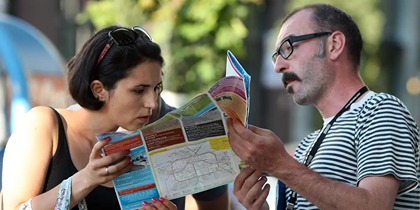
The “Helpful” Tour Guide Scam is a trick in Bangkok where an individual offers to be your tour guide and takes you to shops or markets, where they receive a commission for bringing in customers. The problem with this is that the products you purchase are often overpriced and of poor quality, and the “tour guide” may use high-pressure sales tactics to get you to buy more.
To avoid the “Helpful” Tour Guide Scam, it is important to be aware that real tour guides are licensed and authorized by the government, and they do not receive commissions for bringing customers to shops. If you need a tour guide, it is best to book one through a reputable tour company or to hire one at a reputable tourist information center.
If you are approached by someone offering to be your tour guide, it is okay to decline their offer and continue on your way. If you feel pressured or uncomfortable, it is also okay to walk away from the situation.
In conclusion, the “Helpful” Tour Guide Scam is a prevalent trick in Bangkok, but it can be easily avoided by being informed and cautious. By following these tips, you can ensure that your tour experiences in Bangkok are authentic, educational, and enjoyable.
The Counterfeit Money Scam
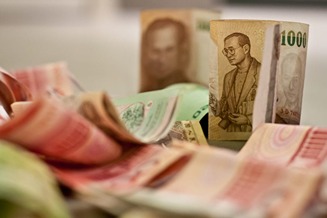
The Counterfeit Money Scam is a trick in Bangkok where individuals pass off fake currency as real money. This can happen when tourists exchange money or make purchases with vendors who knowingly or unknowingly pass off fake currency.
To avoid the Counterfeit Money Scam, it is important to only exchange money at reputable currency exchange offices or banks. When making purchases, it is best to use larger denominations and to examine the money closely for any signs of counterfeiting, such as incorrect colors, paper quality, or printing errors. If you suspect that you have received counterfeit money, do not spend it and bring it to the attention of the vendor or the local police.
It is also helpful to familiarize yourself with the appearance of the local currency and to keep a small amount of change on hand to use for making small purchases. This can reduce the risk of accepting counterfeit money, as vendors are less likely to pass off fake currency in small transactions.
In conclusion, the Counterfeit Money Scam is a common trick in Bangkok, but it can be easily avoided by being informed and vigilant. By following these tips, you can ensure that your financial transactions in Bangkok are secure and protected.
The Tourist Police Scam
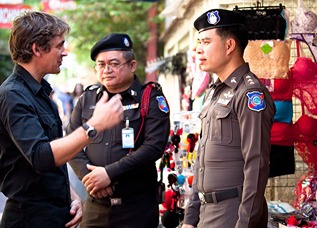
The Tourist Police Scam is a trick in Bangkok where individuals posing as tourist police officers ask tourists for their passports or money, claiming that there is a problem with their visas or other documentation. This scam is often carried out by individuals who are dressed in uniform and carry fake badges, making it difficult for tourists to distinguish between real and fake officers.
To avoid the Tourist Police Scam, it is important to be cautious of anyone claiming to be a tourist police officer who asks for your passport or money. Real tourist police officers will always carry proper identification and will not ask for your passport or money unless there is a legitimate issue with your documentation.
If you are approached by someone claiming to be a tourist police officer, it is best to ask to see their identification and to verify their credentials. You can also ask to speak with a supervisor or to call the local tourist police office to verify their legitimacy.
In conclusion, the Tourist Police Scam is a prevalent trick in Bangkok, but it can be easily avoided by being informed and cautious. By following these tips, you can ensure that your interactions with the tourist police in Bangkok are safe, secure, and legitimate.
Tips for Staying Safe and Avoiding Scams in Bangkok
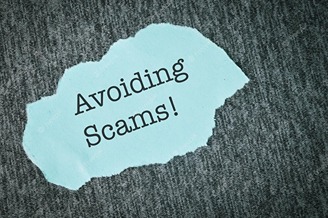
Here are some tips for staying safe and avoiding scams in Bangkok:
Research before you go: Before traveling to Bangkok, research common scams and how to avoid them. Familiarize yourself with the local currency and be aware of the dangers of counterfeit money.
Keep your valuables safe: Keep your valuables, including your passport, money, and credit cards, in a safe and secure place. Use a money belt or an hidden pouch to carry your money and passport, and be mindful of pickpocketing.
Be wary of unsolicited offers: Be wary of unsolicited offers, especially from individuals offering to be your tour guide or to exchange money. Always be cautious of anyone who approaches you offering goods, services, or information that seems too good to be true.
Avoid overpriced taxis: To avoid overpriced taxis, use reputable taxi companies or meter taxis. Do not enter a taxi that does not have a meter, and be cautious of taxi drivers who suggest taking an alternative route that is longer or more expensive.
Do not trust street vendors: Street vendors may sell counterfeit or fake products, or use high-pressure sales tactics to get you to buy more. It is best to shop at reputable stores and to be cautious of street vendors who approach you aggressively.
Use common sense: Use common sense and trust your instincts. If a situation feels dangerous or suspicious, do not hesitate to walk away.
In conclusion, by following these tips, you can stay safe and avoid scams in Bangkok. By being informed, vigilant, and cautious, you can ensure that your travels in Bangkok are enjoyable and memorable.
Conclusion: Trust Your Instincts and Stay Alert.
In conclusion, the most important thing to remember when traveling to Bangkok is to trust your instincts and stay alert. By being informed about common scams, keeping your valuables safe, and using common sense, you can minimize the risk of becoming a victim of a scam.
It is also essential to stay aware of your surroundings, to be cautious of unsolicited offers, and to be wary of individuals who seem too eager to help. Remember that if a situation feels dangerous or suspicious, it is best to walk away and to seek assistance from reputable sources.
By following these tips and being mindful of your safety, you can have a safe and enjoyable experience in Bangkok. So, be prepared, stay alert, and trust your instincts to stay protected from scams
If you want to gain a deeper understanding of the current state of crime in Bangkok, be sure to check out our previous blog on the topic. Understanding the Current State of Crime in Bangkok will give you a comprehensive look at the different types of crimes and the steps you can take to stay safe while exploring the city.
Q. What are some ways to prevent scams in Thailand?
To avoid scams in Thailand, be cautious of unsolicited offers, especially for transportation or tours. Also, do not share personal or financial information and always verify the authenticity of websites and people before making transactions.
Q. What actions should be taken if one falls victim to a scam in Bangkok?
If scammed in Bangkok, contact the local authorities and file a report. It is also recommended to contact your embassy or consulate for further assistance.
Q. What are currently the most widespread scams?
Popular scams currently include online fraud, phishing, and investment scams. It is important to be vigilant and carefully verify the legitimacy of any offers or requests for personal information.
